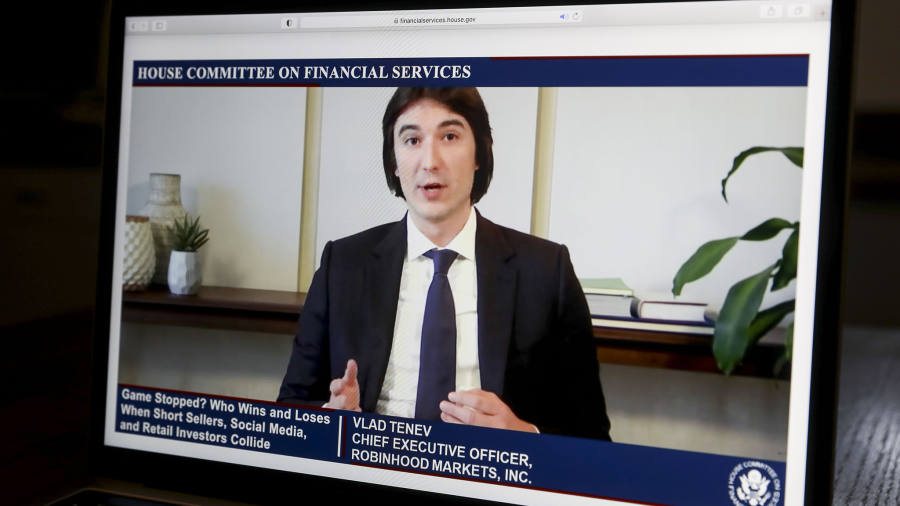[ad_1]
Philip Stafford
The Depository Trust & Clearing Corporation, which runs the clearing house at the centre of Robinhood’s move to restrict GameStop trading, is working on a system that would reduce the settlement times for US securities to one day from the current two, but added that the industry was not ready to support an even shorter timeframe.
In written testimony to the House financial services committee, the clearing and settlement giant also defended the extra charges it initially levied on Robinhood and the other brokers in the frenzied trading of “meme stocks” in late January, and said it used a permitted discretion to waive a special charge and ease the pressure.
In the letter, DTCC chief executive Michael Bodson said the clearing house had conducted pilot projects with new technology to speed up settlement times. The issue was pinpointed by both Robinhood’s Vlad Tenev and Citadel Securities’ Ken Griffin; Tenev has called for instant settlement. The clearer needs regulatory approval to reduce US securities settlement times.
In the week of GameStop’s surge, DTCC’s National Securities Clearing Corp unit twice processed record volumes of shares, surpassing the coronavirus crisis last March. On January 27, the 474m transaction sides it processed exceeded its record by 100m, it said.
In specific circumstances, the clearer’s rules allow it to apply special charges. One example included a “capital premium charge”, to discourage clearing members from taking on more risk in their portfolios at NSCC than their capital levels can reasonably support.
The clearer said the charges effectively accelerated collection of payments from many clearing members with exposure to meme stocks. It “reflected significant growth in risk in many clearing members’ unsettled portfolios”, it said. However it later waived the capital premium charge for all members.
“NSCC exercises this discretion carefully, often in unique circumstances. In such cases, NSCC’s sole objective is to balance the need to protect the system from a potential clearing member default against the damage and other risks that could result if NSCC were to cease-to-act and liquidate a clearing member’s portfolio.”
[ad_2]
Source link





